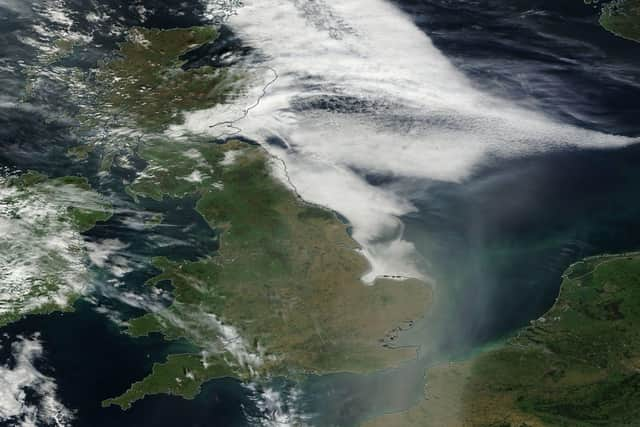September heatwave: Windows and cars left ‘dusty’ as Sahara sand blows across UK amid high temperatures
and live on Freeview channel 276
If your windows are slightly dusty this week, here’s why. Satellite imagery shows vast swathes of Sahara sand blowing across Europe and landing in the UK amid a delayed September heatwave.
The snapshot shows observations of the phenomenon on Wednesday (September 6) - which was the hottest day of the year in the UK so far. The fascinating images were made possible by NASA’sEarth Observing System Data and Information System (EOSDIS).
Advertisement
Hide AdAdvertisement
Hide AdIn Manchester, residents reported waking up on Thursday morning to find their cars were filthier than usual. It’s though to be down to Saharan dust which has blown all the way to the UK from North Africa.


The Met Office said: “Saharan dust is a mixture of sand and dust from the Sahara, the vast desert area that covers most of North Africa. As in other parts of the world, the wind can blow strongly over deserts - whipping up dust and sand high into the sky.
“If the winds in the upper part of the atmosphere are blowing north, the dust can be carried as far as the UK.” It comes a late summer heatwave grips the UK, with an amber-level health warning from the UK Health Security Agency (UKHSA) lodged for most of England until Sunday (September 10).
Brits are being urged to prioritise their health during the heatwave, especially the elderly and those with pre-existing health conditions, to avoid putting the NHS at risk. It is expected temperatures will start to drop off a little next week, although the Met Office predicts they will stay ‘higher than average’ for this time of year over the next few weeks.
Comment Guidelines
National World encourages reader discussion on our stories. User feedback, insights and back-and-forth exchanges add a rich layer of context to reporting. Please review our Community Guidelines before commenting.
